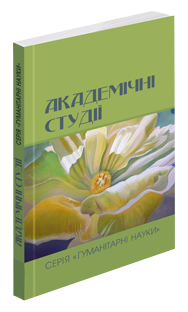Abstract
The purpose of our research is: to show Micro-Pragmatic Analysis of the concept SECURITY in the mind of Americans; to present internal structure of the concept SECURITY and its subconcepts, as SAFE, PROTECT, DEFEND, FREEDOM, STRENGTH, WAR, TERROR. The analysis of associative links of concept SECURITY representatives revealing a certain associative meaning, which allows us to consider linguistic units associated with this meaning as some entrances to the concept SECURITY. Such subconcepts as SAFE, PROTECT, DEFEND, FREEDOM, STRENGTH, WAR, TERROR are associated with the concept of SECURITY or they are in a synonymous relationships with the main concept SECURITY. The analysis of all the presented meanings allows us to identify the main components of the meaning of the concept SECURITY: 1) a subjective feeling, sensation, state: a) physical security; b) stability, order in different spheres (financial, social, political, etc.); c) confidence, trust, peace; 2) everything that provides this feeling, sensation: objects, people, their actions. These interpretations of the meaning of the concept SECURITY allow us to notice certain features of the linguistic representation of the concept SECURITY. Thus, the antonymic interpretation is widely used (unthreatened, riskless, not exposed to danger, not likely to change), which generally indicates a high potential ability of antonyms (representatives of the concepts WAR, THREAT, DANGER, etc.) to appeal to this basic concept SECURITY. Based on this, it seems possible to model a conditional situation in which the concept SECURITY is actualized: instability, uncertainty, fear of worsening the situation, risk, danger, threat, destruction, losses in some area of life, causing a desire for protection, defense, security, guarantees, order, safety.
References
Alahmadi, A. & Foltz, A. (2020). Effects of Language Skills and Strategy Use on Vocabulary Learning Through
Lexical Translation and Inferencing. Journal of Psycholinguist Research, 49 (6), pp. 975–991. https://doi.org/10.1007/
s10936-020-09720-9
A declaration of Joseph Robinette Biden unwavering U.S. support for Ukraine’s sovereignty (2022). https://www.whitehouse.gov/
A statement of J. Biden emphasizing Ukraine’s resilience against Russian aggression (2022). https://www.whitehouse.gov/
Chen, Si, Zhao, J., de Ruiter, L., Zhou, J. & Huang, J. (2022). A burden or a boost: The impact of early childhood English learning experience on lower elementary English and Chinese achievement. International Journal of Bilingual Education and Bilingualism, 25 (4), pp. 1212–1229. https://doi.org/10.1080/13670050.2020.1749230
Collins, A. Brian, Sanchez, M. & Espana, C. (2023). Sustaining and developing teachers’ dynamic bilingualism in a redesigned bilingual teacher preparation program. International Journal of Bilingual Education and Bilingualism, 26 (2), pp. 97–113. https://doi.org/10.1080/13670050.2019.1610354
Directly blaming Russia for its actions in Ukraine: J. Biden speech (2022). https://millercenter.org/the-presidency/presidential-speeches/february-24-2022-remarks-russian-invasion-ukraine
El-Zawawy, A.M. (2021). On-Air Slips of the Tongue: A Psycholinguistic-Acoustic Analysis. Journal of Psycholinguist Research, 50 (3), pp. 463–505. https://doi.org/10.1007/s10936-020-09755-y
Guerrero, M. (2023). State of the art: a forty-year reflection on the Spanish language preparation of Spanish-English bilingual-dial language teachers in the U.S. International Journal of Bilingual Education and Bilingualism, 26 (2), pp. 146–157. https://doi.org/10.1080/13670050.2020.1865257
Cui, G., Wang, Y. & Zhong, X. (2021). The Effects of Suprasegmental Phonological Training on English Reading Comprehension: Evidence from Chinese EFL Learners. Journal of Psycholinguist Research, 50 (2), pp. 317–333. https://doi.org/10.1007/s10936-020-09743-2
Greco, M., Canal, P., Bambini, V. & Moro, A. (2020). Modulating “Surprise” with Syntax: A Study on Negative Sentences and Eye-Movement Recording. Journal of Psycholinguist Research, 49 (3), pp. 415–434. https://doi.org/10.1007/s10936-020-09691-x
Hamedi, S.M. & Pishghadam, R. (2021). Visual Attention and Lexical Involvement in L1 and L2 Word Processing: Emotional Stroop Effect. Journal of Psycholinguist Research, 50 (3), pp. 585–602. https://doi.org/10.1007/s10936-020-09709-4
Huang, T., Loerts, H. & Steinkrauss, R. (2022). The impact of second- and third-language learning on language aptitude and working memory. International Journal of Bilingual Education and Bilingualism, 25 (2), pp. 522–538.
https://doi.org/10.1080/13670050.2019.1703894
Mykhalchuk, N. & Bihunova, S. (2019). The verbalization of the concept of “fear” in English and Ukrainian phraseological units. Cognitive Studies | Études cognitives, 19, pp. 20–43. Warsaw. https://doi.org/10.11649/cs.2043
Mykhalchuk, N., Bihunova, S., Bihunov, D. & Ivashkevych, Er. (2023). The Semantic Space of Concepts in Modern British Political Discourse. Cognitive Studies | Études cognitives, Warsaw, 2023 (23), Article 2850, pp. 28–50.
https://doi.org/10.11649/cs.2850. https://journals.ispan.edu.pl/index.php/cs-ec/article/view/cs.2850
Mykhalchuk, N., Bihunova, S., Fridrikh, A. & Vietrova, I. (2021). The cross-cultural understanding of metaphors in the information technology sphere. Cognitive Studies | Études cognitives, 2021 (21), pp. 24–75. https://doi.org/10.11649/cs.2475
Mykhalchuk, N., Kharchenko, N., Kalmykov, H., Ivashkevych, Er., Ivashkevych, Ed., Hupavtseva, N., Mysan, I. (2024). Concept “EDUCATION” and its Subconcepts in the Consciousness of Ukrainian managers. PSYCHOLINGUISTICS, 36 (1), pp. 154–188. https://doi.org/10.31470/2309-1797-2024-36-1-154-188
Mykhalchuk, N., Plakhtii, A., Panchenko, O., Ivashkevych, Ed., Hupavtseva, N. & Chebykin, O. (2023). Concept “ENGLAND” and its Subconcepts in the Consciousness of Ukrainian Students. PSYCHOLINGUISTICS, 34 (2), pp. 6–47.
https://doi.org/10.31470/2309-1797-2023-34-2-6-47
The Speech of J. Biden to support Ukraine, its democratic values on the NATO Summit in Vilnius, Lithuania (2022).
defending-democratic-values-and-taking-action-to-address-global-challenges-vilnius-lithuania/

This work is licensed under a Creative Commons Attribution 4.0 International License.

